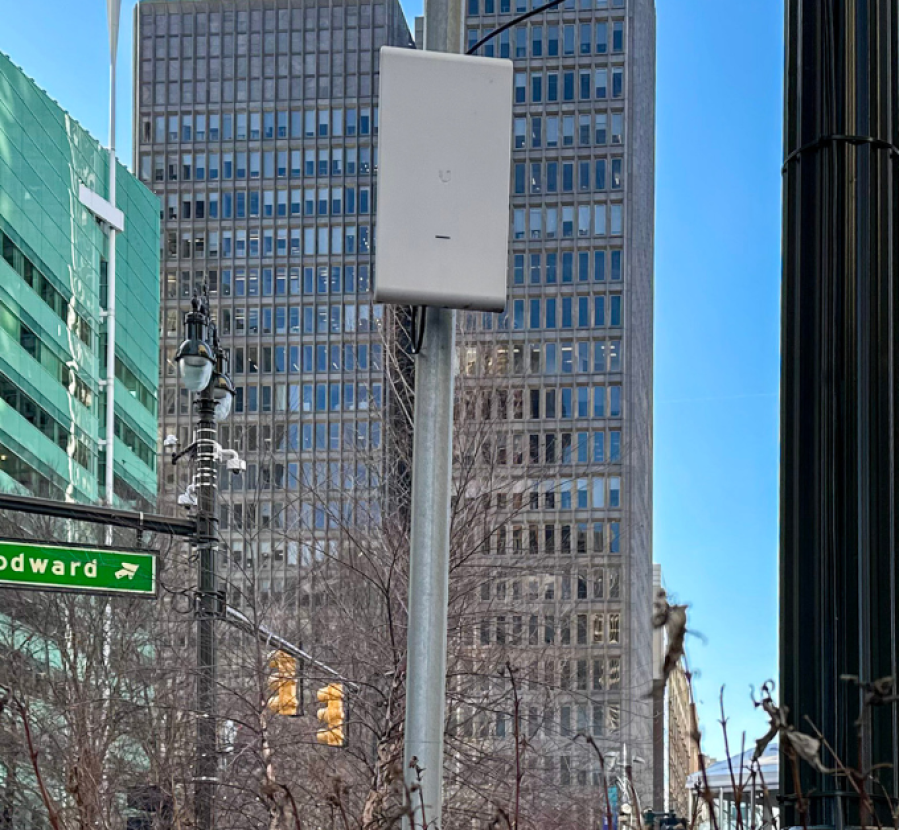Government agencies and public sector organizations require more than basic internet connectivity. From emergency response systems to citizen services, reliable government internet services form the backbone of modern public administration. When internet connections fail, essential services stop, and public safety can be compromised.
Unlike commercial businesses, government agencies face unique connectivity challenges, including 24/7 operational requirements, mission-critical applications, and the need for redundant systems that never fail. Government internet services must deliver enterprise-grade reliability with the security and compliance standards that public sector organizations demand.
Why Government Internet Services Are Mission-Critical
Government operations can’t afford internet downtime. When connectivity fails, emergency response systems go offline, public safety communications break down, and citizen services become unavailable. According to the U.S. Government Accountability Office, even brief internet outages can cost government agencies thousands of dollars in lost productivity and delayed services.
Modern government agencies rely on internet connectivity for everything from processing citizen applications to coordinating emergency response efforts. This makes choosing the right government internet services provider a critical infrastructure decision that impacts public safety and service delivery.
Essential Government Internet Services for Public Sector Success
1. High-Speed Fiber Internet for Government Buildings
Fiber optic internet delivers the lightning-fast speeds government agencies need for data-intensive operations. According to the Federal Communications Commission, fiber provides symmetrical upload and download speeds essential for video conferencing, large file transfers, and cloud-based applications.
Government fiber internet benefits include:
- Speeds up to 1 Gigabit per second for seamless operations
- Weather-resistant connections that maintain reliability
- Low latency for real-time applications and communications
- Scalable bandwidth that grows with agency needs
- Future-proof technology supporting emerging applications
Agencies using fiber internet report 95% fewer connectivity issues and significantly improved employee productivity across all departments.
2. Fixed Wireless Internet for Remote Locations
Many government facilities operate in locations where traditional wired internet isn’t feasible. Fixed wireless internet services use advanced microwave technology to deliver high-speed connectivity without the need for physical cables.
Fixed wireless solutions offer:
- Rapid deployment to remote government facilities
- Enterprise-class reliability comparable to fiber
- Cost-effective connectivity for temporary installations
- Redundant network paths for enhanced reliability
- 24/7 monitoring and support capabilities
Fixed wireless is particularly valuable for public safety applications, emergency response centers, and government facilities in rural or hard-to-reach areas.
3. Redundant Network Infrastructure for Business Continuity
Government agencies require internet services with built-in redundancy to ensure continuous operations. According to CISA cybersecurity guidelines, single points of failure can disrupt critical services and compromise public safety communications.
Redundant government internet services include:
- Multiple upstream internet providers for failover protection
- Diverse network routing to prevent single-point failures
- SD-WAN technology for automatic traffic switching
- 99.99% uptime Service Level Agreements
- Real-time network monitoring and rapid response
Agencies with redundant internet infrastructure experience 90% fewer service disruptions and maintain operations during emergencies when connectivity is most critical.
4. Secure WiFi Networks for Public Spaces
Government organizations increasingly need to provide internet access in public spaces like parks, community centers, and government buildings. These networks must balance public access with security requirements.
Public sector WiFi solutions feature:
- Secure guest networks separated from internal systems
- Bandwidth management to ensure fair usage
- Content filtering and security monitoring
- Large-scale coverage for events and gatherings
- Easy management and monitoring tools
Well-designed public WiFi networks improve citizen satisfaction while maintaining the security standards government agencies require.
5. Temporary Internet Services for Emergency Response
During emergencies, natural disasters, or special events, government agencies often need immediate internet connectivity in locations without existing infrastructure. Temporary internet services provide rapid deployment capabilities for crisis situations.
Emergency connectivity solutions include:
- Mobile WiFi systems supporting thousands of users
- Rapid deployment in under 24 hours
- Self-contained systems requiring minimal setup
- Satellite backup options for disaster scenarios
- Coordination with emergency management teams
These services proved essential during recent emergency responses, enabling coordination between multiple agencies and maintaining communication when traditional infrastructure failed.

Choosing the Right Government Internet Services Provider
Government agencies have unique requirements that not all internet service providers can meet. When evaluating government internet services, agencies should prioritize providers with:
Local Presence: Providers with local technical teams who understand regional challenges and can respond quickly to issues.
Government Experience: Track record working with public sector organizations and understanding government procurement processes.
Enterprise-Grade Infrastructure: Network diversity, redundant systems, and carrier-grade equipment that meets government reliability standards.
24/7 Support: Round-the-clock monitoring and rapid response capabilities for mission-critical systems.
Scalable Solutions: Ability to adjust bandwidth and services as agency needs evolve.
The right government internet services provider becomes a strategic partner, not just a vendor, supporting agency missions while ensuring reliable connectivity for critical operations.
Real-World Government Internet Success Stories
Leading government agencies have transformed their operations through strategic internet infrastructure investments. Detroit’s Public Safety Headquarters implemented a specialized network supporting thousands of security cameras streaming real-time video for emergency response coordination.
Municipal agencies have deployed large-scale WiFi networks covering multiple public parks, supporting hundreds of events annually and thousands of vendors and visitors. These implementations demonstrate how reliable government internet services enable better citizen engagement and more effective public safety operations.
Emergency management teams have successfully used temporary internet solutions during crisis situations, maintaining communications and coordination when traditional infrastructure was compromised.
Future of Government Internet Services
Emerging technologies are reshaping government internet requirements. Smart city initiatives require robust connectivity for IoT sensors and real-time data collection. Video-based public safety systems demand high-bandwidth, low-latency connections for live monitoring and response.
5G integration and edge computing will enhance government internet services, enabling faster response times and supporting next-generation applications like augmented reality for emergency responders and AI-powered traffic management systems. The National Institute of Standards and Technology emphasizes the importance of robust network infrastructure for supporting emerging government technologies.
Government agencies planning for the future should partner with internet service providers who invest in cutting-edge infrastructure and understand evolving public sector connectivity needs.
FAQ Section
What makes government internet services different from commercial internet?
Government internet services require higher reliability standards, often including 99.99% uptime guarantees, redundant infrastructure, and 24/7 support. They also need to meet security requirements and support mission-critical applications that can’t tolerate downtime.
How quickly can government internet services be deployed?
Deployment timelines vary by service type. Fiber installations typically take 2-4 weeks, while fixed wireless can be deployed in 3-5 business days. Emergency temporary internet services can be operational within 24 hours for crisis situations.
What internet speeds do government agencies typically need?
Internet speed requirements depend on agency size and applications. Small offices may need 100 Mbps, while large facilities with video systems and cloud applications often require 500 Mbps to 1 Gbps. Modern fiber networks can easily scale as needs grow.
How do government internet services ensure security?
Government internet services include enterprise-grade firewalls, network segmentation, encrypted connections, and continuous monitoring. Providers work with agencies to implement security policies that meet government standards while maintaining operational efficiency.
Ready to upgrade your agency’s internet infrastructure? Contact our team of government internet specialists to discuss how reliable, high-speed connectivity can improve your operations, enhance public safety, and better serve your community.
For more information about our comprehensive business internet services or to discuss your government connectivity needs, contact our team today. Based in Detroit, we’ve been serving Michigan’s public sector since 2008.


